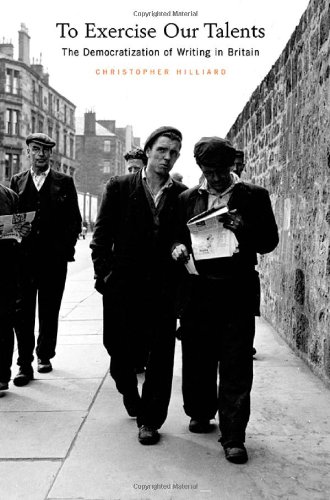

Most ebook files are in PDF format, so you can easily read them using various software such as Foxit Reader or directly on the Google Chrome browser.
Some ebook files are released by publishers in other formats such as .awz, .mobi, .epub, .fb2, etc. You may need to install specific software to read these formats on mobile/PC, such as Calibre.
Please read the tutorial at this link. https://ebooknice.com/page/post?id=faq
We offer FREE conversion to the popular formats you request; however, this may take some time. Therefore, right after payment, please email us, and we will try to provide the service as quickly as possible.
For some exceptional file formats or broken links (if any), please refrain from opening any disputes. Instead, email us first, and we will try to assist within a maximum of 6 hours.
EbookNice Team

Status:
Available4.5
25 reviewsIn twentieth-century Britain the literary landscape underwent a fundamental change. Aspiring authors--traditionally drawn from privileged social backgrounds--now included factory workers writing amid chaotic home lives, and married women joining writers' clubs in search of creative outlets. In this brilliantly conceived book, Christopher Hilliard reveals the extraordinary history of "ordinary" voices.
Writing as an organized pursuit emerged in the 1920s, complete with clubs, magazines, guidebooks, and correspondence schools. The magazine The Writer helped coordinate a network of "writers' circles" throughout Britain that offered prospective authors--especially women--outside the educated London elite a forum in which to discuss writing. The legacy of Wordsworth and other English Romantics encouraged the belief that would-be authors should write about what they knew personally--that art flowed from genuine experience and technique was of secondary importance. The 1930s saw a boom in the publication of so-called proletarian writing, working-class men writing "in my own language about my own people," as Birmingham writer Leslie Halward put it. During World War II, soldiers turned to poetry to cope with the trauma of war, and the popular magazine Seven promoted the idea that anyone, regardless of social background, could be a creative writer. Self-expression became a democratic right.
In capturing the creative lives of ordinary people--would-be fiction-writers and poets who until now have left scarcely a mark on written history--Hilliard sensitively reconstructs the literary culture of a democratic age.